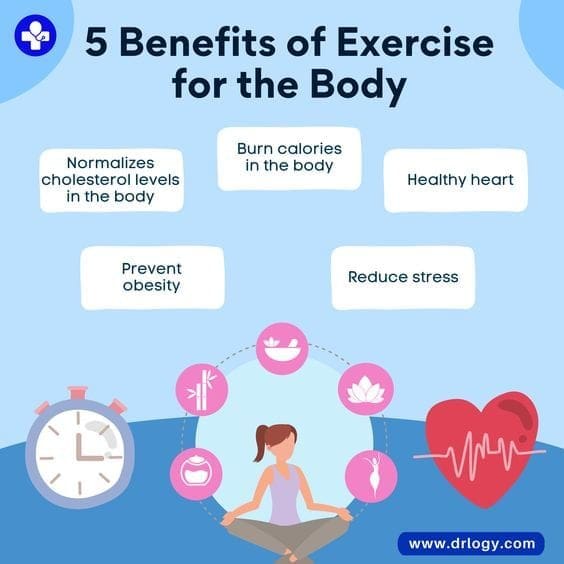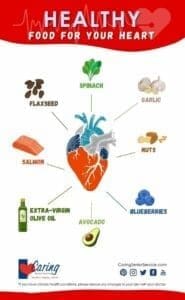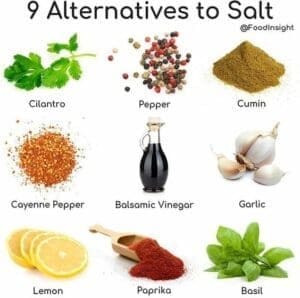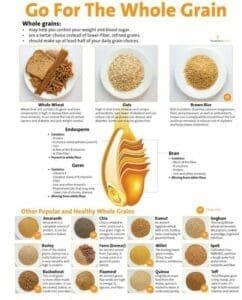Optimizing your diet with Heart Health Nutrition is key to sustaining a robust cardiovascular system. Our guide underscores the significance of nutrition in heart health, detailing essential dietary selections that bolster cardiovascular protection. Embrace heart-healthy fats and fiber-abundant foods as you uncover actionable advice for nurturing your heart. Proactively enhance your cardiovascular health with dietary adjustments that promise enduring benefits for your heart’s function and resilience.
1. Healthy Fats for a Healthy Heart
1.1 The Importance of Dietary Fat
When it comes to heart health, many people assume that all fats are bad. However, this is far from the truth. In fact, dietary fats play a crucial role in maintaining a healthy heart. Fats provide essential nutrients and energy, aid in the absorption of fat-soluble vitamins, and help with cell development and function. The key lies in distinguishing between healthy fats and unhealthy fats.
1.2 Types of Fats to Consume
Not all fats are created equal, and it’s important to choose the right kinds of fats to support your heart health. Healthy fats, such as monounsaturated fats and polyunsaturated fats, can actually help lower your risk of heart disease. These fats are found in foods such as avocados, nuts, seeds, and fatty fish. On the other hand, unhealthy fats, such as trans fats and saturated fats, can raise your cholesterol levels and increase your risk of heart disease. It’s best to limit your intake of foods high in these fats, such as fried foods, pastries, and fatty cuts of meat.
1.3 Sources of Healthy Fats
Incorporating healthy fats into your diet is easier than you might think. Foods like avocados, olive oil, and nuts are excellent sources of monounsaturated fats. These foods not only add flavor and texture to your meals but also provide heart-healthy benefits. Additionally, including fatty fish like salmon, mackerel, and sardines in your diet can provide a good dose of omega-3 fatty acids, which are known for their heart-protective properties. It’s important to note that while these foods contain healthy fats, portion control is key to maintaining a balanced diet.
1.4 Cooking and Preparation of Healthy Fats
When it comes to cooking and preparing healthy fats, there are a few things to keep in mind. First, opt for cooking methods that don’t involve deep-frying or excessive amounts of oil. Grilling, baking, and sautéing with a minimal amount of healthy oils like olive oil are great options. Additionally, it’s important to be mindful of portion sizes. While healthy fats are beneficial for heart health, consuming excessive amounts can still lead to weight gain and other health issues. Remember to enjoy these fats in moderation as part of a well-rounded diet.
2. The Power of Fiber
2.1 Benefits of Dietary Fiber
Fiber is a crucial nutrient that plays a significant role in maintaining heart health. Consuming an adequate amount of dietary fiber has been linked to a reduced risk of heart disease, stroke, and high blood pressure. Fiber helps lower cholesterol levels, regulates blood sugar levels, promotes healthy digestion, and contributes to weight management. Including fiber-rich foods in your diet can have a profound impact on your cardiovascular well-being.
2.2 Types of Dietary Fiber
There are two main types of dietary fiber: soluble fiber and insoluble fiber. Soluble fiber dissolves in water and forms a gel-like substance in the digestive tract. This type of fiber can help lower cholesterol levels by binding to cholesterol and preventing its absorption. Insoluble fiber, on the other hand, promotes regular bowel movements and prevents constipation. Both types of fiber are important for heart health and can be found in a variety of foods.
2.3 Foods High in Fiber
Incorporating fiber-rich foods into your diet is easier than you might think. Fruits, vegetables, whole grains, legumes, nuts, and seeds are all excellent sources of dietary fiber. Some examples of fiber-rich foods include apples, berries, broccoli, quinoa, lentils, almonds, and chia seeds. Adding these foods to your meals and snacks can help increase your fiber intake and provide numerous health benefits, including improved heart health.
2.4 Incorporating Fiber into Your Diet
If you’re new to incorporating fiber into your diet, it’s important to do so gradually. Suddenly increasing your fiber intake can cause digestive discomfort, such as bloating and gas. Start by adding small amounts of fiber-rich foods to your meals and gradually increase the portions over time. Additionally, remember to drink plenty of water when consuming fiber, as it helps in the digestion process. Aim to include a variety of fiber-rich foods in your daily meals to ensure you’re getting a good balance of soluble and insoluble fiber.
3. The Role of Omega-3 Fatty Acids
3.1 Benefits of Omega-3 Fatty Acids
Omega-3 fatty acids are a type of polyunsaturated fat that is known for its many health benefits, particularly for the heart. These fatty acids have been shown to reduce inflammation, lower triglyceride levels, and improve overall heart health. Consuming omega-3 fatty acids can also help prevent the formation of blood clots and reduce the risk of irregular heartbeats. Incorporating these beneficial fats into your diet can go a long way in protecting your cardiovascular well-being.
3.2 Dietary Sources of Omega-3 Fatty Acids
Omega-3 fatty acids are primarily found in fatty fish, such as salmon, mackerel, and sardines. These types of fish are rich in eicosapentaenoic acid (EPA) and docosahexaenoic acid (DHA), two types of omega-3 fatty acids that have been extensively studied for their cardiovascular benefits. If you’re not a fan of fish or are following a vegetarian or vegan diet, there are plant-based sources of omega-3 fatty acids as well. These include flaxseeds, chia seeds, walnuts, and hemp seeds.
3.3 Recommended Daily Intake
To reap the heart-healthy benefits of omega-3 fatty acids, it is recommended to consume at least two servings of fatty fish per week. Each serving should be about 3.5 ounces. If you’re obtaining your omega-3 fatty acids from plant-based sources, be mindful that the conversion of these fats in the body may not be as efficient as obtaining them directly from EPA and DHA found in fish. In such cases, it may be necessary to supplement your diet with omega-3 supplements.
3.4 Omega-3 Supplements
If you’re unable to consume sufficient amounts of omega-3 fatty acids through your diet, supplements can be a convenient option. Omega-3 supplements are available in various forms, such as fish oil capsules, krill oil capsules, and algae-based supplements for vegetarians and vegans. Before starting any supplementation, it’s important to consult with a healthcare professional to determine the appropriate dosage for your individual needs. Remember, supplements should complement a healthy diet, not replace it.
4. The Magic of Antioxidants
4.1 Role of Antioxidants in Heart Health
Antioxidants play a vital role in protecting your heart health by neutralizing harmful free radicals in the body. Free radicals are unstable molecules that can damage cells, including those in your arteries. This damage can contribute to the development of cardiovascular disease. Antioxidants help prevent this damage by neutralizing these free radicals and reducing inflammation in the body. Including antioxidant-rich foods in your diet can have a significant impact on maintaining a healthy heart.
4.2 Types of Antioxidants and Their Sources
There are several types of antioxidants that offer unique benefits for heart health. Some of the key antioxidants include vitamin C, vitamin E, beta-carotene, and various phytochemicals, such as flavonoids and resveratrol. Citrus fruits, berries, nuts, seeds, and green leafy vegetables are excellent sources of vitamin C and other antioxidants. Vitamin E can be found in foods like almonds, sunflower seeds, and avocados. Beta-carotene is abundant in orange and yellow fruits and vegetables, such as carrots and sweet potatoes. Lastly, flavonoids and resveratrol can be found in dark chocolate, red wine, grapes, and berries.
4.3 Antioxidant-Rich Foods
Including a variety of antioxidant-rich foods in your diet can help protect your heart health. Some examples of antioxidant-rich foods include blueberries, strawberries, oranges, spinach, kale, walnuts, almonds, green tea, dark chocolate, and red wine (in moderation). Try to incorporate these foods into your meals and snacks to ensure you’re getting a good mix of antioxidants and reaping their many benefits.
4.4 Tips for Maximizing Antioxidant Intake
To maximize your antioxidant intake, aim to consume a colorful variety of fruits and vegetables. The vibrant colors in fruits and vegetables often indicate high levels of antioxidants. Additionally, try to include a handful of nuts or seeds in your daily snacks, as they are packed with antioxidants and healthy fats. When it comes to tea, green tea is a great choice as it contains a high concentration of antioxidants. Finally, remember to enjoy antioxidant-rich foods in moderation and consider them as part of a well-balanced diet.
5. The Impact of Sodium and Salt
5.1 Connection Between Sodium and High Blood Pressure
Excessive sodium intake has long been associated with high blood pressure, which is a major risk factor for heart disease. When you consume too much sodium, your body retains water to dilute the sodium concentration, leading to an increase in blood volume and, subsequently, high blood pressure. It’s important to be mindful of your sodium intake and make efforts to reduce it for the sake of your heart health.
5.2 Limiting Sodium Intake
The American Heart Association recommends limiting sodium intake to no more than 2,300 milligrams (mg) per day, which is roughly the equivalent of one teaspoon of salt. For individuals with existing high blood pressure or other health conditions, the recommended limit is even lower, at 1,500 mg per day. To reduce your sodium intake, it’s important to be mindful of the foods you consume and make smart choices when it comes to processed and packaged foods. Opt for fresh, whole foods whenever possible and limit your consumption of salty snacks, fast food, and processed meats.
5.3 Hidden Sources of Sodium
While it’s easy to identify high-sodium foods like chips and fast food, there are many hidden sources of sodium that can contribute to your overall intake. Some common culprits include canned soups, salad dressings, condiments, canned vegetables, and even bread. Checking food labels for sodium content can help you make informed choices and avoid products that are high in sodium. Be mindful of the sodium content in the foods you consume regularly and opt for low-sodium alternatives whenever possible.
5.4 Healthy Alternatives to Salt
Reducing your sodium intake doesn’t mean sacrificing flavor. There are several healthy alternatives to salt that can add flavor to your meals without the negative effects of excessive sodium. Herbs and spices, such as garlic, basil, turmeric, and cumin, can provide depth and complexity to your dishes without adding sodium. Additionally, using lemon juice, lime juice, or vinegar can add a tangy flavor that enhances your meals. Experimenting with different herbs, spices, and citrus juices can help you discover new and flavorful ways to season your food while keeping your heart health in mind.
6. The Dangers of Added Sugars
6.1 Negative Effects of Excessive Sugar Intake
Consuming excessive amounts of added sugars has been linked to an increased risk of heart disease. Sugar is a major contributor to weight gain, high cholesterol levels, and inflammation in the body, all of which can have detrimental effects on heart health. It’s important to be mindful of your sugar intake and make efforts to reduce it for the sake of your cardiovascular well-being.
6.2 Sources of Hidden and Added Sugars
Added sugars can be found in a variety of processed and packaged foods, often in surprising amounts. Common culprits include sugary beverages, such as soda and energy drinks, sweetened cereals, baked goods, flavored yogurt, and condiments like ketchup and barbecue sauce. To reduce your intake of added sugars, it’s important to read food labels and be aware of the various names that sugar can hide under, such as high fructose corn syrup, dextrose, and sucrose.
6.3 Strategies to Reduce Sugar Consumption
Reducing your sugar consumption is a key step in maintaining a healthy heart. Start by being intentional about the foods and drinks you consume. Opt for whole, unprocessed foods whenever possible and choose drinks without added sugars. If you have a sweet tooth, consider satisfying your cravings with naturally sweet foods like fresh fruit. Additionally, gradually reduce the amount of sugar you add to your recipes and beverages, as your taste buds will adjust over time. Making conscious choices and being mindful of your sugar intake can have a significant impact on your heart health.
6.4 Natural Sugar Substitutes
If you enjoy a touch of sweetness in your meals or beverages, there are natural sugar substitutes that you can incorporate into your diet. Stevia, monk fruit extract, and erythritol are all natural sweeteners that have zero calories and minimal impact on blood sugar levels. These alternatives can be used in moderation to add sweetness to your recipes without the negative effects of added sugars. As always, it’s important to use sugar substitutes in moderation and maintain a balanced diet.
7. The Importance of Whole Grains
7.1 Health Benefits of Whole Grains
Whole grains are an essential component of a heart-healthy diet. Unlike refined grains, which have been stripped of their bran and germ, whole grains contain all parts of the grain, including the fiber, vitamins, and minerals. Consuming whole grains has been linked to a reduced risk of heart disease, high blood pressure, and stroke. These nutrient-packed grains provide a steady source of energy, support healthy digestion, and help regulate blood sugar levels.
7.2 Types of Whole Grains
There are several types of whole grains to choose from, all of which offer unique flavors and textures. Some common examples include whole wheat, brown rice, quinoa, oats, barley, and buckwheat. Each of these grains provides an abundance of fiber, protein, vitamins, and minerals that are essential for maintaining a healthy heart. Experiment with different whole grains to find your favorites and incorporate them into your meals and snacks.
7.3 Incorporating More Whole Grains
Incorporating more whole grains into your diet is easier than you might think. Start by swapping refined grains with whole grain alternatives. Replace white rice with brown rice, white bread with whole wheat bread, and regular pasta with whole grain pasta. When shopping, look for products that are labeled “100% whole grain” to ensure you’re getting the full benefits. Additionally, incorporating grains like quinoa and barley into your salads, stir-fries, and soups can add a nutritious twist to your meals.
7.4 Reading Food Labels for Whole Grain Content
Reading food labels is key to identifying whole grain products. Look for products that list whole grains, such as whole wheat or whole oats, as the first ingredient. This indicates that the product contains a higher proportion of whole grains compared to other ingredients. Some products may use terms like “multigrain” or “wheat flour,” which can be misleading. It’s important to look for the “100% whole grain” label or ensure that whole grains are listed as the main ingredient to maximize the health benefits of the product.
8. Nutrient-Packed Fruits and Vegetables
8.1 Role of Fruits and Vegetables in Heart Health
Fruits and vegetables are nutritional powerhouses that play a vital role in maintaining heart health. Packed with vitamins, minerals, fiber, and antioxidants, these plant-based foods have been shown to reduce the risk of heart disease, stroke, and high blood pressure. The ample amounts of potassium found in many fruits and vegetables can also help lower blood pressure. Adding more fruits and vegetables to your diet can provide a wide range of benefits for your cardiovascular well-being.
8.2 Heart-Friendly Fruits
Incorporating a variety of heart-friendly fruits into your diet can help support your cardiovascular health. Berries, such as strawberries, blueberries, and raspberries, are rich in antioxidants and fiber. Citrus fruits, like oranges and grapefruits, provide a good dose of vitamin C and other heart-protective compounds. Apples and pears are high in soluble fiber, which helps lower cholesterol levels. Including these fruits as snacks or incorporating them into salads, smoothies, or desserts can add both flavor and heart-healthy benefits to your meals.
8.3 Heart-Healthy Vegetables
Vegetables are an essential component of a heart-healthy diet and offer a wide range of nutrients. Leafy greens, such as spinach and kale, are rich in vitamins, minerals, and antioxidants that support heart health. Cruciferous vegetables, including broccoli, cauliflower, and Brussels sprouts, contain compounds that can help reduce inflammation and support cardiovascular health. Other heart-healthy vegetables include bell peppers, tomatoes, carrots, and sweet potatoes. Adding a variety of colorful vegetables to your meals can provide a range of nutrients necessary for maintaining a healthy heart.
8.4 Including More Produce in Your Diet
Finding ways to include more fruits and vegetables in your daily meals doesn’t have to be challenging. Start by aiming to fill half of your plate with fruits and vegetables at each meal. Incorporate a variety of colors to ensure you’re getting a wide range of vitamins, minerals, and antioxidants. Fresh fruits make convenient and nutritious snacks, and vegetables can be added to salads, stir-fries, soups, and side dishes. Get creative and experiment with different flavors and textures to make fruits and vegetables a delicious part of your diet.
9. Balancing Protein Intake
9.1 Importance of Lean Protein Sources
Protein is an essential nutrient that plays a crucial role in maintaining heart health. It is the building block of cells, tissues, and organs, and it also helps repair and build muscle. However, not all protein sources are created equal. Choosing lean protein sources that are low in saturated fat can help support heart health and reduce the risk of heart disease. It’s important to balance your protein intake with other nutrients to maintain a healthy cardiovascular system.
9.2 Heart-Healthy Protein Choices
Including heart-healthy protein sources in your diet can provide the necessary nutrients without weighing you down with excessive saturated fat. Fish, such as salmon, trout, and tuna, are excellent sources of lean protein and omega-3 fatty acids. Skinless poultry, such as chicken and turkey, are also good options. For vegetarians and vegans, plant-based protein sources like legumes, tofu, tempeh, and quinoa offer a good amount of protein without the saturated fat.
9.3 Recommended Daily Protein Intake
The recommended daily protein intake varies depending on factors such as age, sex, and activity level. As a general guideline, the average adult needs about 0.8 grams of protein per kilogram of body weight. However, individual needs may vary, and it’s best to consult with a healthcare professional or registered dietitian to determine the specific protein requirements for your situation.
9.4 Protein and Plant-Based Diets
A plant-based diet can provide an ample amount of protein without the saturated fat found in many animal-based protein sources. Legumes, such as beans, lentils, and chickpeas, are excellent sources of plant-based protein. Nuts, seeds, and whole grains also offer protein, in addition to other beneficial nutrients. By incorporating a variety of plant-based protein sources into your diet, you can support your heart health while enjoying a flavorful and diverse range of meals.
10. The Benefits of Water
10.1 Relevance of Hydration for Heart Health
Proper hydration is crucial for maintaining heart health. Water is essential for the delivery of nutrients, the removal of waste products, and the regulation of body temperature. Staying well-hydrated helps support the cardiovascular system by maintaining proper blood volume and preventing dehydration, which can strain the heart and increase the risk of heart disease and other cardiovascular issues. Ensuring adequate hydration is an important aspect of overall heart health.
10.2 Recommended Daily Water Intake
The recommended daily water intake varies depending on several factors, including age, sex, activity level, and climate. As a general guideline, it is recommended to consume at least eight 8-ounce glasses of water per day, which is equivalent to about 2 liters or half a gallon. However, individual needs may vary, and it’s important to listen to your body’s hydration cues and adjust your intake accordingly.
10.3 Other Hydrating Beverages
While water is the best choice for staying hydrated, other beverages can contribute to your overall fluid intake. Herbal teas, 100% fruit juices (in moderation), and certain low-sugar electrolyte drinks can provide hydration as well. However, it’s important to be mindful of added sugars and caffeine content in these beverages, as excessive consumption can have negative effects on heart health. Water remains the healthiest and most accessible choice for staying hydrated.
10.4 Staying Hydrated Throughout the Day
To ensure you stay hydrated throughout the day, make it a habit to carry a water bottle with you wherever you go. Sip on water regularly, even when you’re not feeling thirsty, as thirst is not always an accurate indicator of hydration status. If you struggle with drinking enough water, try infusing it with fruits or herbs for added flavor. Set reminders or establish a routine to encourage regular water intake. Making hydration a priority can go a long way in supporting your cardiovascular well-being.
In conclusion, nutrition plays a crucial role in maintaining heart health. Incorporating healthy fats, fiber, omega-3 fatty acids, antioxidants, whole grains, fruits, vegetables, lean proteins, and water into your diet can have a profound impact on your cardiovascular well-being. By making mindful choices and prioritizing heart-healthy foods, you can protect your heart and enjoy a long and healthy life. Remember to consult with a healthcare professional or registered dietitian for personalized advice and guidance on maintaining a heart-healthy diet.
Disclaimer
The content is purely informative and educational in nature and should not be construed as medical advice. Please use the content only in consultation with an appropriate certified medical or healthcare professional




